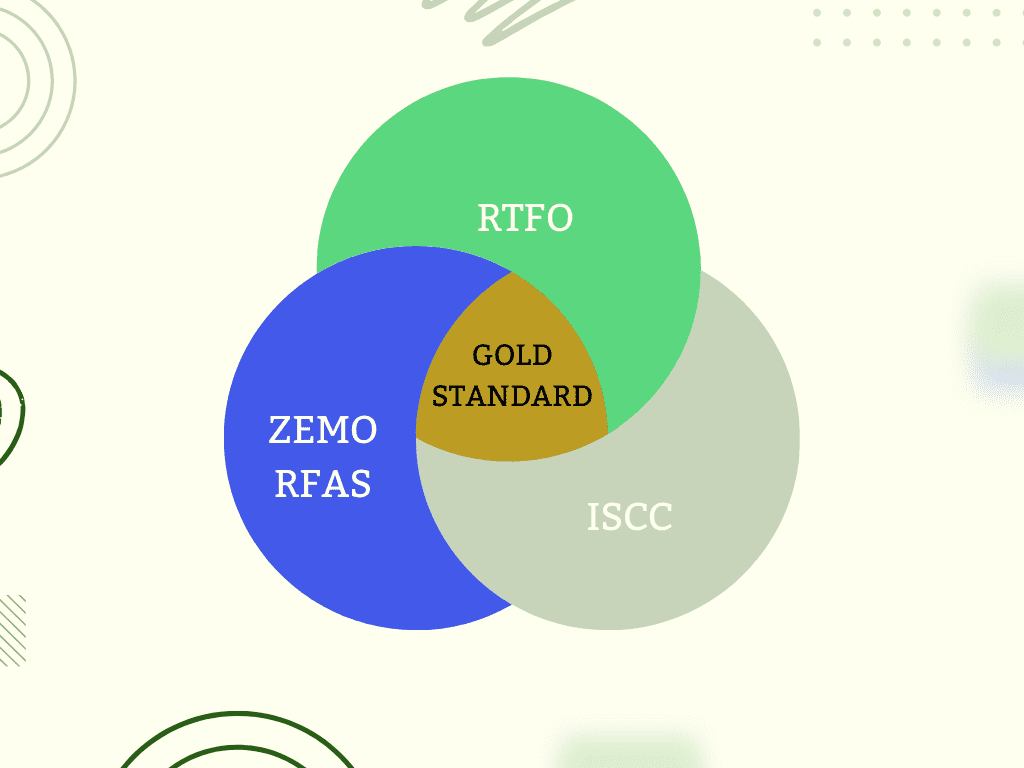ISCC Certification: What It Means and Why It Matters
In an era where sustainability is a priority for governments and businesses, ensuring that renewable fuels meet strict environmental and social standards is crucial. The International Sustainability & Carbon Certification (ISCC) is one of the most widely recognised sustainability schemes, ensuring biofuels like HVO (Hydrotreated Vegetable Oil) are sourced responsibly, reduce emissions, and comply with global regulations. This certification is essential for fleet operators, fuel suppliers, and policymakers looking to adopt low-carbon fuels while ensuring full compliance with sustainability mandates.

Key Benefits of switching to HVO fuel

Drop-in compatible
No need for engine modifications or infrastructure changes.

Up to 90% CO₂ reduction
One of the most sustainable fuels available.

Meets ISCC and Zemo RFAS standards
Ensures full compliance with UK regulations.

Scalable and available now
No waiting for EV or hydrogen infrastructure development.
What Is ISCC Certification?
ISCC (International Sustainability & Carbon Certification) is a global certification system that verifies the sustainability of biofuels, biomass, and other renewable materials. It applies to fuel producers, traders, and end users who need to prove compliance with sustainability and carbon reduction standards.
For HVO fuel buyers, ISCC certification is a mark of credibility, ensuring that renewable diesel is truly sustainable and not linked to deforestation or unethical sourcing practices.
Key Aspects of the ISCC
Ensures sustainable sourcing of biofuels and bio-based materials.
Verifies that fuels achieve significant greenhouse gas (GHG) reductions.
Guarantees traceability and supply chain integrity.
Recognised under the UK’s Renewable Transport Fuel Obligation (RTFO).
Verifies that fuels achieve significant greenhouse gas (GHG) reductions.
The Key Benefits of ISCC Certification for HVO and Other Biofuels
Fleet managers, government officials, and procurement teams choosing HVO fuel can benefit significantly from ISCC certification.
For public sector fleets, ISCC certification adds reliability and confidence when transitioning from diesel to HVO.
Proves Sustainability
ISCC-certified HVO fuel meets stringent environmental and ethical sourcing standards.
Supports Regulatory Compliance
ISCC is recognised under the UK RTFO, allowing certified fuels to earn Renewable Transport Fuel Certificates (RTFCs).
Enhances Market Credibility
Public sector fleets and corporate buyers can trust ISCC-certified fuel suppliers.
Verifies Carbon Reduction Claims
ISCC ensures that HVO delivers real greenhouse gas (GHG) savings of at least 50-65% compared to fossil diesel.
Strengthens Supply Chain Integrity
Provides a transparent, verifiable system that tracks the sustainability of fuel from source to distribution.
ISCC Certification vs. Other Standards (RTFO & Zemo RFAS)
ISCC is one of several sustainability schemes, but how does it compare?
ISCC & RTFO Compliance
- The Renewable Transport Fuel Obligation (RTFO) is the UK government’s legal framework for ensuring transport fuels meet sustainability requirements.
- ISCC is a recognised scheme under the RTFO, meaning ISCC-certified fuels can qualify for RTFO incentives and certification schemes.
ISCC & Zemo Renewable Fuels Assurance Scheme (RFAS)
- The Zemo Partnership RFAS is a UK-specific scheme that helps fleet operators verify sustainable fuels.
- While ISCC is a global certification, RFAS is a UK-based voluntary program focusing on high-blend renewable fuels.
- ISCC covers a wider scope, including feedstock sourcing and international compliance, while RFAS focuses more on UK fleet adoption.
Fleet operators looking for a global certification with broad credibility should prioritise ISCC-certified HVO.
How Does ISCC Certification Work?
For a fuel supplier to become ISCC-certified, they must pass strict sustainability criteria. This ensures that HVO fuel used by fleets meets the highest sustainability standards.
The ISCC Certification Process
Feedstock Verification
Ensuring the raw materials (e.g., waste oils) are sustainably sourced and not linked to deforestation.
GHG Emissions Calculation
The fuel must deliver at least 50-65% lower emissions compared to fossil diesel.
Chain of Custody & Traceability
The entire supply chain is audited to prevent greenwashing.
Independent Audit & Certification
Third-party auditors verify compliance before certification is granted.
Why ISCC Certification Matters for UK Public Sector Fleets
For councils, emergency services, and logistics operators, ISCC-certified HVO fuel provides a trusted path to fleet decarbonisation. Benefits include:
Ensures Compliance – Helps public fleets meet net-zero commitments and sustainability targets.
Future-Proofs Fuel Purchases – As regulations tighten, ISCC-certified fuels are already ahead of compliance requirements.
Gives Confidence in HVO – Public sector buyers can trust that ISCC-certified HVO is sourced ethically and delivers real GHG savings.
Supports Green Procurement – Government procurement teams can rely on ISCC as a globally recognised standard when selecting sustainable fuels.
“For any fleet operator serious about decarbonisation, ISCC certification isn’t just a badge — it’s a guarantee. It ensures the HVO you’re using is not only cutting emissions but doing so with full transparency and global credibility. If you’re switching from diesel, start with an ISCC-certified supplier — it’s the surest way to align with both sustainability targets and compliance demands.”
Simon Fowler

